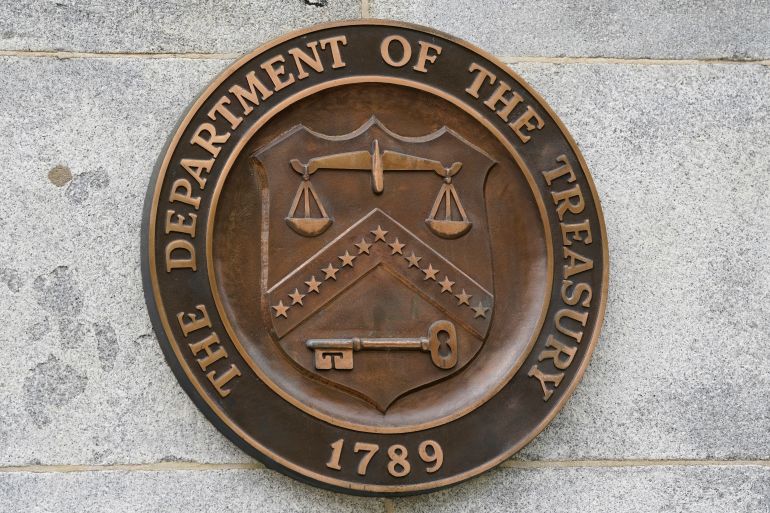US finalises restrictions on AI, semiconductor investments in China
Treasury Department says curbs will ensure US investment does not advance technologies that threaten national security.
The curbs are due to take effect on January 2 [Patrick Semansky/AP]Published On 29 Oct 202429 Oct 2024
The United States has finalised rules that limit investments in critical technology sectors in China such as artificial intelligence on national security grounds, the Treasury Department has announced.
The restrictions will bar US citizens and permanent residents, as well as US-based companies, from engaging in transactions involving technologies including AI, semiconductors and quantum computing, the Treasury said in a statement on Monday.
US investors will also be obligated to inform the Treasury about investments in some less advanced technologies “that may contribute to the threat to the national security of the United States”, the Treasury said.
The curbs, which are due to take effect on January 2, will ensure “US investment is not exploited to advance the development of key technologies by those who may use them to threaten our national security,” said Paul Rosen, the assistant secretary of the Treasury for Investment Security.
“US investments, including the intangible benefits like managerial assistance and access to investment and talent networks that often accompany such capital flows, must not be used to help countries of concern develop their military, intelligence, and cyber capabilities,” Rosen said.
The curbs come on the heels of President Joe Biden signing an executive order last year targeting investment in semiconductors and microelectronics, quantum computing and certain artificial intelligence capabilities.
Biden warned at the time that US investments could be aiding adversaries’ development of sensitive technologies that are “critical to such countries’ military, intelligence, surveillance, or cyber-enabled capabilities”.
China’s Ministry of Foreign Affairs slammed Biden’s executive order as an attempt to “engage in anti-globalization and de-sinicization”.
“Beijing is strongly dissatisfied and firmly opposes the United States’ insistence on introducing restrictions on investment in China, and has lodged solemn representations with the United States,” the ministry said in a statement.
